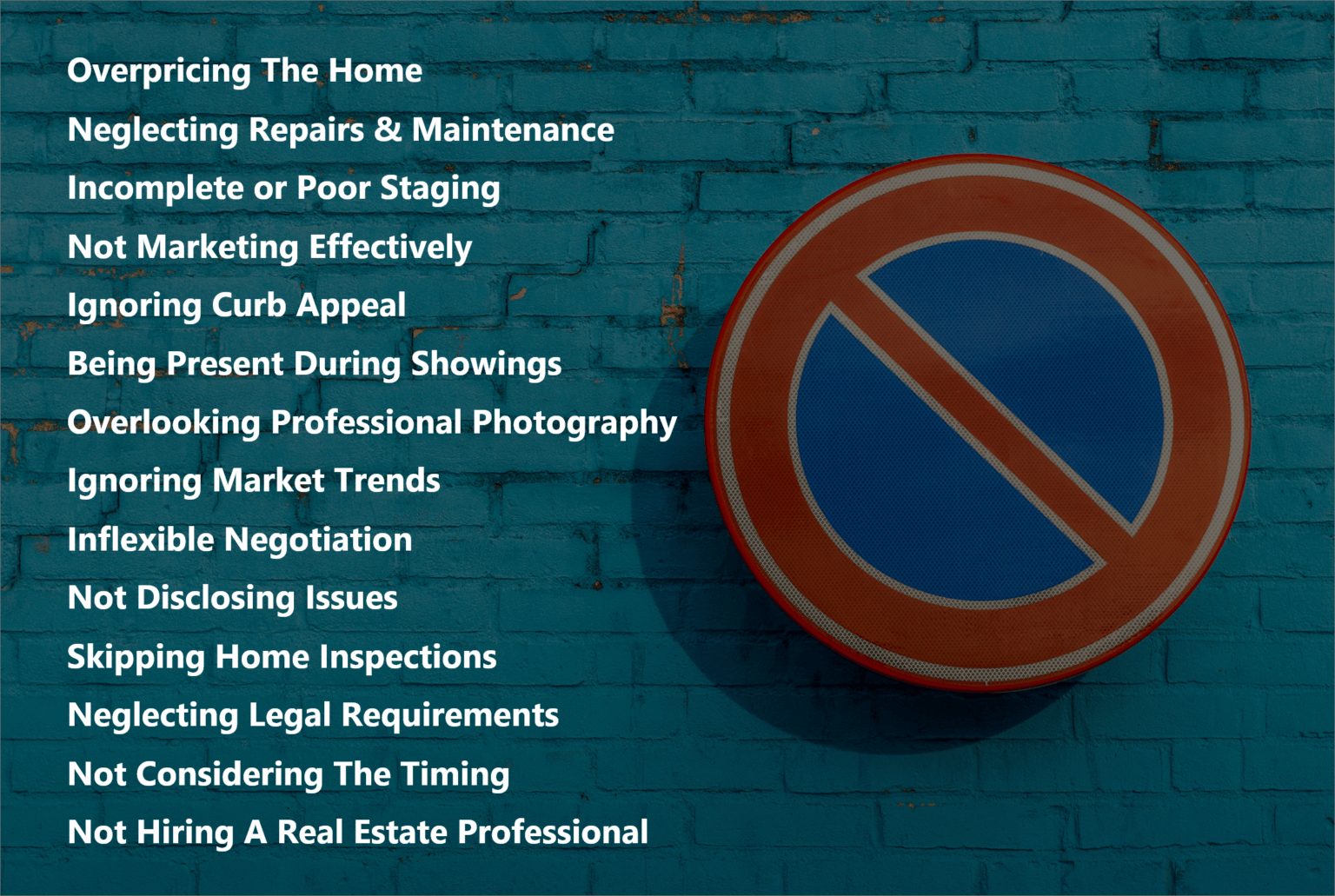Navigating the Home Selling Journey: A Seller’s Handbook

In recent years, the real estate sector has undergone significant transformations. As per recent studies, over 10 million Americans will put their homes on the market by 2025. Given the intense competition in the market, it’s natural to feel overwhelmed with the prospect of selling your home.
To help you ease through the process, we’ve created this comprehensive seller’s handbook to ensure a smooth home-selling journey. Whether you’re a first-time seller or have sold homes before, this article will serve as your ultimate guide and checklist for a successful home sale.
Step-By-Step Guide To Prepare For Home Selling
This section will walk you through a checklist to consider when getting your home ready for sale. By following these steps, you can ensure that your house is presented best to attract potential buyers.
- Start Early: Begin the preparation process before listing your home. This allows ample time for repairs, cleaning, and improvements.
- Declutter & Depersonalize: Remove personal items, excess furniture, and clutter. Buyers should be able to envision themselves living in the space.
- Deep Clean: Clean every inch of your home, including carpets, windows, appliances, and baseboards. Consider hiring professionals for a deep clean if necessary.
- Make Necessary Repairs: Address all the visible issues. This may include fixing leaks, repairing broken fixtures, and ensuring all appliances are working.
- Get A Seller’s Warranty: Once you have identified the necessary repairs, create a plan to tackle them. Prioritize the tasks based on their urgency and allocate a budget for repairs. You can also consider opting for a home seller’s warranty to help with these tasks without breaking a sweat.
As a result, a seller’s warranty usually improves the prospect of selling a home. Studies suggest that sellers who offered a home warranty could sell their homes 16% faster. Ultimately, buyers prefer a protected home! - Paint & Refresh: A fresh coat of neutral paint can make your home more appealing. Pay attention to high-traffic areas and consider updating outdated color schemes.
- Enhance Curb Appeal: First impressions matter. Improve your home’s curb appeal by maintaining the landscaping, cleaning the exterior, and adding fresh flowers or potted plants.
- Stage The Home: Consider professional staging to showcase the potential of each room. Well-staged homes often sell faster and at higher prices.
- Organize & Maximize Storage: Clean and organize closets and storage areas. Buyers appreciate ample storage space, so ensure it looks spacious and well-organized.
- Highlight Key Features: Showcase the best features of your home. Whether it’s a fireplace, a beautiful view, or a spacious kitchen, make sure these features stand out.
- Professional Photography: Invest in professional photography to capture your home in the best light. High-quality images can attract more online views and potential buyers.
- Set the Right Price: Research the local real estate market and consult a real estate agent to set a competitive and realistic selling price.
- Market Strategically: Work with your real estate agent on marketing your house effectively, such as creating online listings, hosting open houses, and creating targeted advertising campaigns.
- Create a Home Information Packet: Prepare a packet with key information about your home, including utility costs, recent repairs, and any warranties that may be transferable to the new owner.
- Negotiate and Close the Deal: Be prepared for negotiations with potential buyers. Work closely with your real estate agent to navigate offers and finalize the sale.
- Complete Legal Requirements: Ensure that all legal requirements are met. This includes necessary disclosures, inspections, and specific state requirements.
These steps can help you present your home in the best possible light, attract potential buyers, and increase the likelihood of a successful sale in the competitive US real estate market. However, getting additional reinforcements like getting a seller’s warranty can increase the prospect of your house manifold.
Benefits Of Getting A Seller’s Warranty
A seller’s warranty can be a valuable tool in selling a home. It provides certain benefits that can help make the property more attractive to potential buyers. Here’s how a seller’s warranty can assist in selling a home:

- Added Buyer Confidence: Offering a seller’s warranty can instill confidence in potential buyers. Knowing that major home systems and appliances are covered for a certain period can alleviate concerns about unexpected repair costs.
- Mitigates Buyer’s Concerns: Buyers may be hesitant if they are concerned about the condition of the home’s systems and appliances. A seller’s warranty addresses these concerns by providing coverage for eligible repairs or replacements.
- Differentiation In A Competitive Market: A seller’s warranty can set your home apart in a competitive real estate market. It becomes an additional selling point that may attract buyers, especially if other similar properties don’t offer such coverage.
- Peace Of Mind For Buyers: Buyers appreciate peace of mind with a home warranty. Knowing they have some protection against unforeseen issues shortly after purchasing the home can make the buying process less stressful.
- Attracts First-Time Homebuyers: First-time homebuyers who may be unfamiliar with the costs and responsibilities of homeownership often find a seller’s warranty appealing. It provides a safety net during the initial period of homeownership.
- Covers Key Systems And Appliances: A typical seller’s warranty covers major home systems such as HVAC, plumbing, and electrical, as well as major appliances like refrigerators and ovens. This comprehensive coverage appeals to a broad range of potential buyers.
- Potential Faster Sale: Homes with a seller’s warranty may attract more serious buyers, potentially leading to a faster sale. Buyers may feel more comfortable making an offer when they know there’s a warranty in place.
- Reduced Post-Sale Disputes: The coverage terms are usually well-defined with a seller’s warranty. This can help reduce post-sale disputes regarding the condition of home systems and appliances, as the warranty provides a clear framework for addressing issues.
- Transferable Coverage: Sometimes, the seller’s warranty is transferable to the new homeowner. This can be an additional selling point, as the buyer inherits the remaining coverage period and benefits.
- Professional Repairs: Seller’s warranties often involve working with a network of qualified service professionals. This can ensure that experienced and reputable technicians handle any covered repairs or replacements.
Check out some of the best home warranty companies offering comprehensive seller plans at competitive prices.
Common Mistakes Sellers Make When Selling Their Homes
Selling a home is a complex process, and there are common mistakes that sellers often make. Awareness of these pitfalls can help you avoid them and increase the likelihood of a smooth and successful sale. Here are some common mistakes people make when selling a home:

- Overpricing The Home: Setting an unrealistic or inflated price can turn off potential buyers. Researching the market and consulting with a real estate agent is essential to determine a competitive and fair listing price.
- Neglecting Repairs & Maintenance: Ignoring necessary repairs or maintenance issues can decrease your home’s appeal. Buyers may be hesitant if they see visible problems, leading to lower offers or a longer time on the market.
- Incomplete or Poor Staging: Inadequate staging or leaving the home cluttered and personalized can hinder potential buyers from envisioning themselves living in the space. Professional staging can make a significant difference.
- Not Marketing Effectively: Refrain from relying solely on traditional marketing methods and neglecting online platforms, which can limit your home’s exposure. A comprehensive marketing strategy is crucial, including online listings and social media.
- Ignoring Curb Appeal: The exterior of your home is the first thing potential buyers see. Neglecting curb appeal can create a negative first impression. Keep the landscaping tidy, repair any exterior issues, and consider adding some welcoming touches.
- Being Present During Showings: Sellers being present during showings can make buyers uncomfortable and hinder their ability to discuss the property openly. Allow your real estate agent to handle showings.
- Overlooking Professional Photography: High-quality photos are essential for online listings. Professional photography can showcase your home in the best light and attract more potential buyers.
- Ignoring Market Trends: Failing to understand current market trends and conditions can impact your pricing strategy and overall selling approach. Stay informed about the local real estate market.
- Inflexible Negotiation: Being too rigid during negotiations can deter potential buyers. Be open to reasonable offers and work collaboratively with buyers to reach a mutually beneficial agreement.
- Not Disclosing Issues: Transparency is crucial. It is important to disclose known issues to avoid legal complications down the road. Provide a complete and honest disclosure statement.
- Skipping Home Inspections: Forgoing a pre-listing home inspection may result in unexpected issues arising during negotiations. Identifying and addressing potential problems beforehand can strengthen your position.
- Neglecting Legal Requirements: Failing to comply with legal requirements, such as providing necessary disclosures or meeting specific timelines, can lead to legal complications. Work closely with your real estate agent to ensure compliance.
- Not Considering The Timing: Timing can affect the sale. Knowing market seasons and economic conditions can help you choose the right time to list your home.
- Not Hiring A Real Estate Professional: Attempting to sell a home without professional guidance can lead to various mistakes. Real estate agents bring expertise, market knowledge, and negotiation skills.
Avoiding these common mistakes and working with a qualified real estate professional can significantly enhance your selling experience and increase the likelihood of a successful transaction.
Conclusion
Selling a home doesn’t have to be an overwhelming experience. You can ensure a smooth and successful home-selling journey by knowing the challenges and following the guidelines outlined in this seller’s handbook. Remember to consult with professionals, be proactive, and stay informed throughout. Good luck with your home sale!




